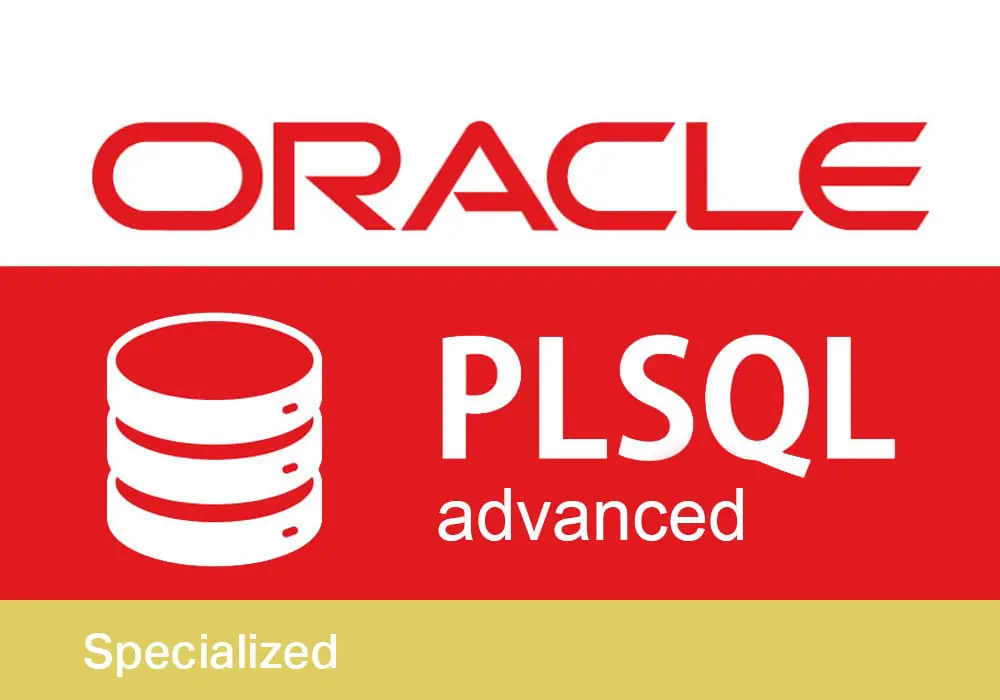In this course you will learn how to use the advanced features of PL/SQL to design and tune PL/SQL to interface with the database and other applications. You will also learn advanced features of program design, packages, cursors, extended interface methods and collections. During this course, you will be introduced to Oracle Database Exadata Express Cloud Service.
This course is aimed at Application Developers and Database Administrators.
Upon completion you will know how to:
- Write powerful PL/SQL programs.
- Explore programming efficiency.
- Use external C and Java routines.
- Apply PL/SQL designing best practices.
- Create PL/SQL applications that use collections.
- Implement a virtual private database with fine-grained access control.
- Write code to interface with external C and Java applications.
- Write code to interface with large objects and use SecureFile LOBs.
- Write and tune PL/SQL code effectively to maximize performance.
- Gain an understanding of the Oracle Database Exadata Express Cloud Service.
Students need to have:
- Basic Knowledge of SQL, PL/SQL
- Familiarity with programming languages
- Oracle Database: Develop PL/SQL Program Units
- Oracle Database: SQL Workshop I
Introduction
- Course Objectives
- Course Agenda
- Describe the development environments
- Identify the tables, data, and tools used in this course
PL/SQL Programming Concepts: Review
- Identify PL/SQL block structure
- Packages, procedures and functions
- Cursors
- Handle exceptions
- Dependencies
Designing PL/SQL Code
- Describe the predefined data types
- Create subtypes based on existing types for an application
- List the different guidelines for cursor design
- Describe cursor variables
- White List
Overview of Collections
- Overview of collections
- Use Associative arrays
- Navigate using associative methods
- Use Nested tables
- Use Varrays
- Compare nested tables and varrays
Using Collections
- Write PL/SQL programs that use collections
- Use Collections effectively
- Enhancements to PL/SQL Type Binds
Manipulating Large Objects
- Working with LOBs
- Overview of SecureFile LOBs
Using Advanced Interface Methods
- Calling External Procedures from PL/SQL
- Benefits of External Procedures
- Understand how an external routine is called from PL/SQL
- C advanced interface methods
- Java advanced interface methods
Performance and Tuning
- Understand and influence the compiler
- Tune PL/SQL code
- Enable intra unit inlining
- Identify and tune memory issues
- Recognize network issues
Improving Performance with Caching
- Describe result caching
- Use SQL query result cache
- Use PL/SQL function cache
- Review PL/SQL function cache considerations
Analyzing PL/SQL Code
- Finding Coding Information
- PL/Scope Concepts
- DBMS_METADATA Package
- PL/SQL Enhancements
Profiling and Tracing PL/SQL Code
- Tracing PL/SQL Execution
- Tracing PL/SQL: Steps
12:Implementing VPD with Fine-Grained Access Control
- Understand how fine-grained access control works overall
- Describe the features of fine-grained access control
- Describe an application context
- Create an application context
- Set an application context
- List the DBMS_RLS procedures
- Implement a policy
- Query the dictionary views holding information on fine-grained access
Safeguarding Your Code Against SQL Injection Attacks
- SQL Injection Overview
- Reducing the Attack Surface
- Filtering Input with DBMS_ASSERT
Oracle Cloud Overview
- Introduction to Oracle Cloud & Oracle Cloud Services
- Cloud Deployment Models
- Evolving from On-premises to Exadata Express
- What is in Exadata Express?
- Exadata Express for Users & Developers
- Oracle Exadata Express Cloud Service
- Getting Started with Exadata Express
- Service Console & Web Access through Service Console
Nu există cursuri recomandate după finalizarea acestui curs.


